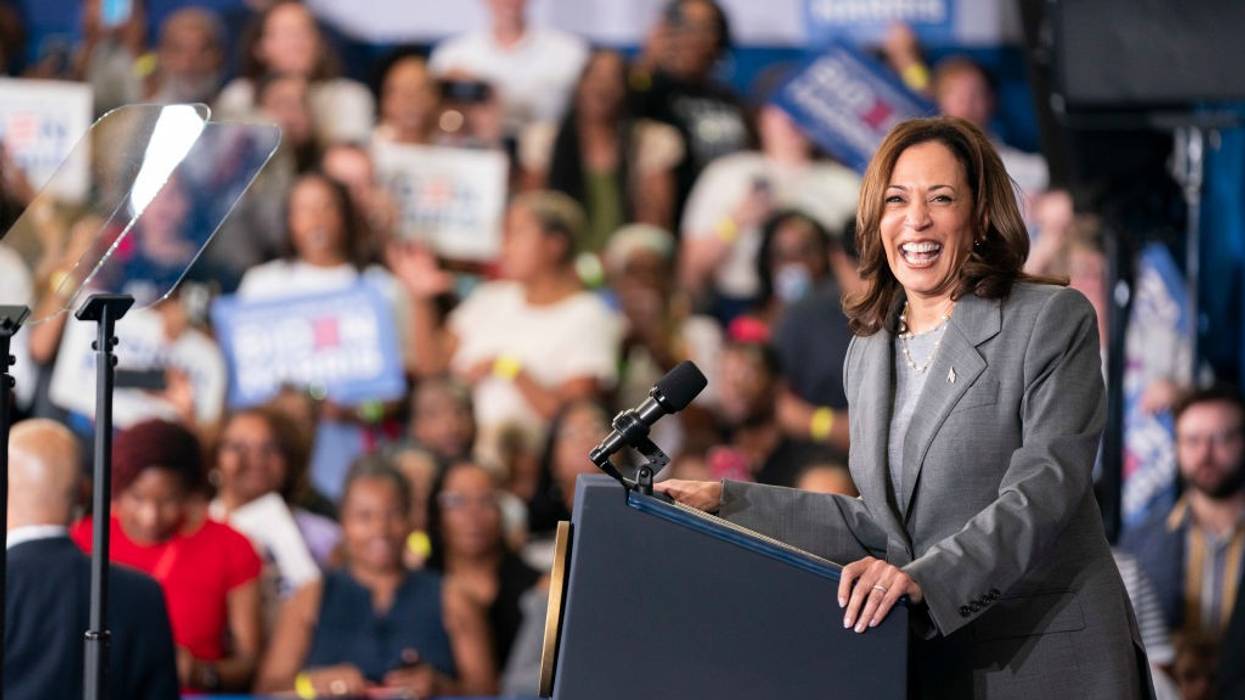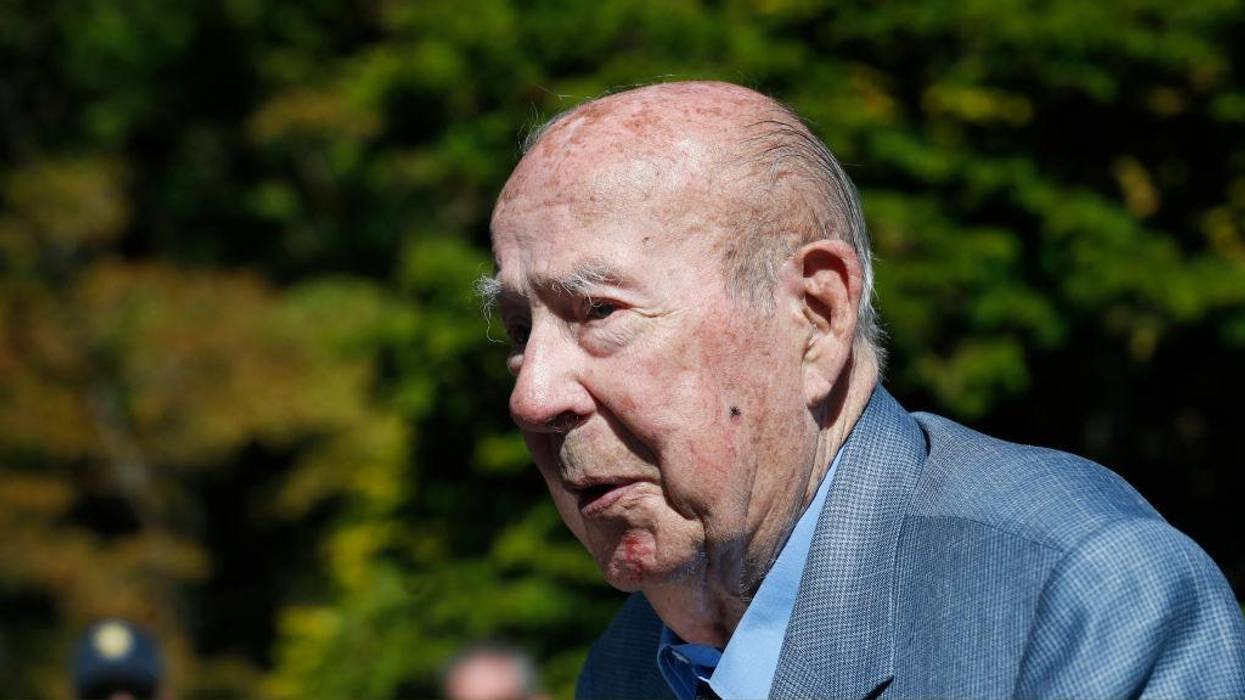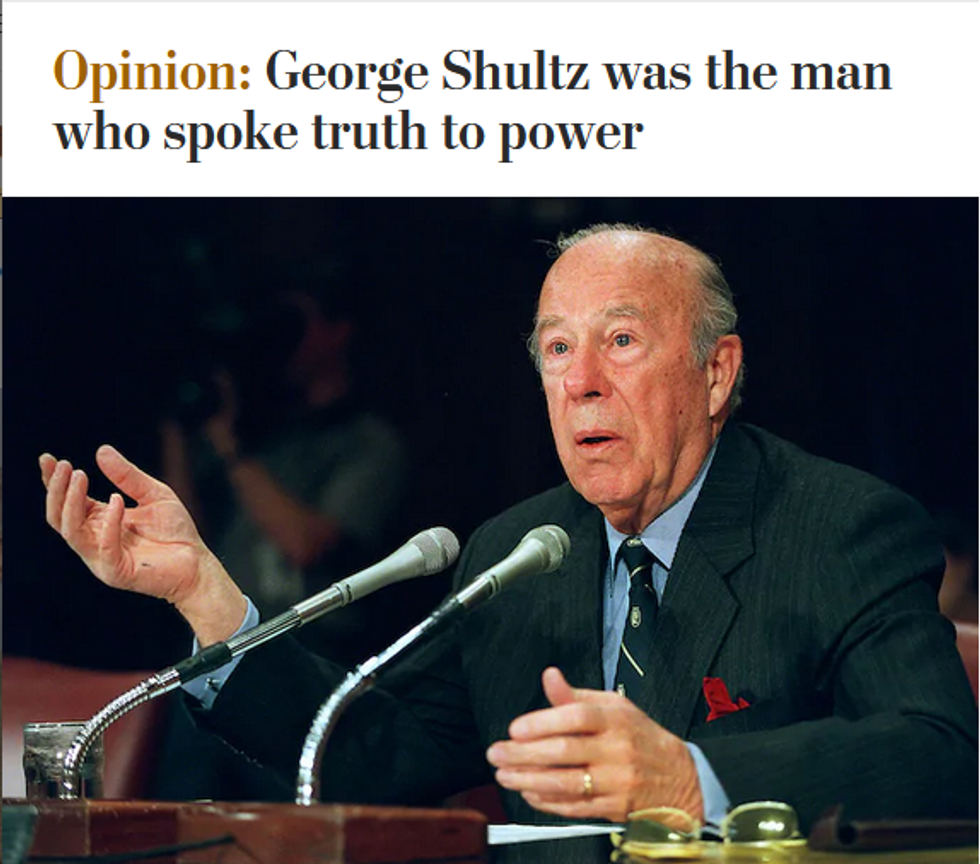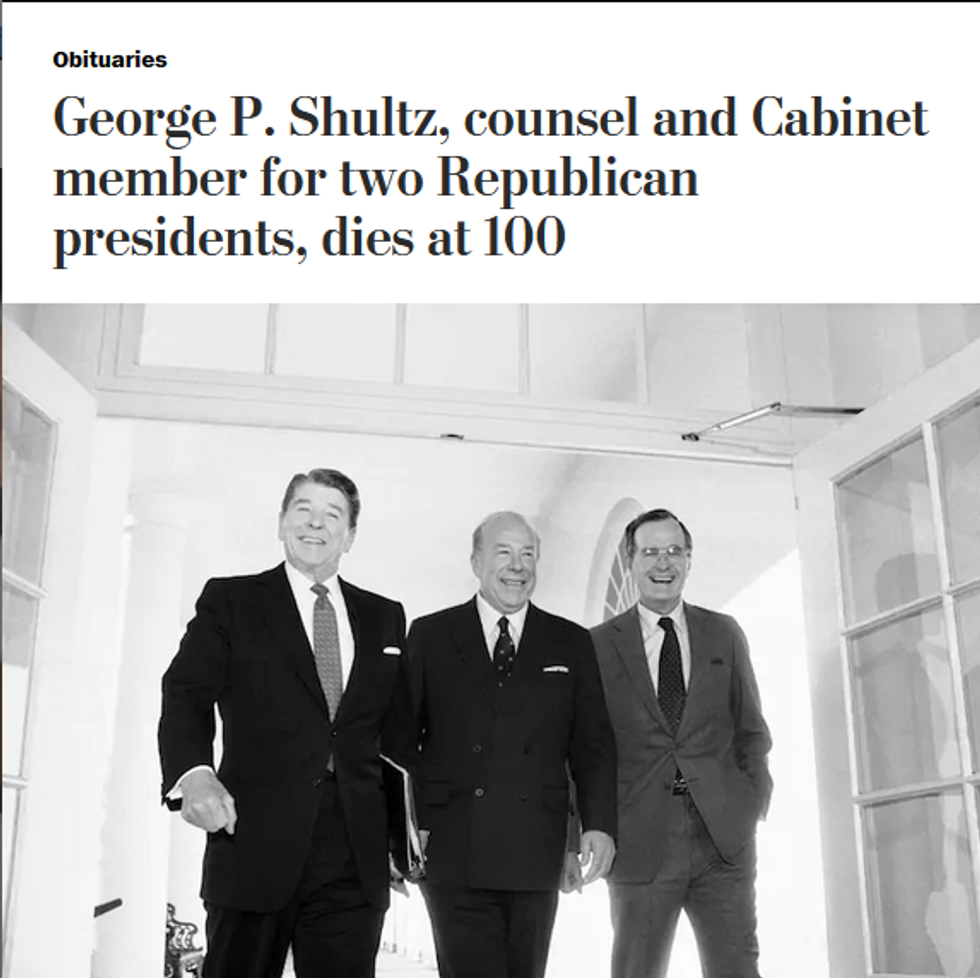Kamala Harris Is Trump’s Worst Nightmare
He dreads with every racist, misogynistic fiber in his body the rise of Harris and the intensity of her support, and also the organizing might of Black women voters.
One of the nation’s best-known Black Republicans is former U.S. Secretary of State Condoleezza Rice. In the 21st century (and perhaps ever), no African American woman rose higher in Republican politics than Rice, who served as President George W. Bush’s national security adviser and then his secretary of state, both firsts. Like her or not, agree with her politics or not, she brought significant experience, knowledge, and professionalism to those positions.
Former President Donald Trump’s first public words about Rice date back to 2006 when he labeled her with a vile term. In a speech before 8,000 people in New York City, he said, “Condoleezza Rice, she’s a lovely woman, but I think she’s a bitch. She goes around to other countries and other nations, negotiates with their leaders, comes back, and nothing ever happens.” There was no justification for Trump using such repulsive language other than his own toxic petulance and racist misogyny against Black women.
The stunning upheaval in the 2024 presidential race has, in fact, brought into sharp focus Trump’s longstanding animosity toward and war against Black women.
His vulgarity and sexism toward Rice foreshadowed a political future of hateful attacks on women—particularly women of color—with whom he disagrees. That incident provides some context for a recent New York Times report that, in private, Trump has referred repeatedly to Vice President Kamala Harris, his most formidable challenger for the 2024 presidential race, as a “bitch.” His campaign spokesperson Steven Cheung shamelessly and unbelievably stated that, when it comes to the person many would view as the most profane president ever, “That is not language President Trump has used to describe Kamala.” In fact, Trump’s longstanding and fixed sense of patriarchy and the cruel slurs against women that go with it are well documented.
The stunning upheaval in the 2024 presidential race has, in fact, brought into sharp focus Trump’s longstanding animosity toward and war against Black women. President Joe Biden’s June 21st decision to drop out of that race propelled Harris to become the presumptive Democratic nominee for president, which means Trump now faces the one opponent who not only threatens his return to office, but also triggers his worse racist and sexist behavior.
Trump Goes After Harris and Other Black Women
In her first weeks running for president, he has publicly called Kamala Harris “dumb as a rock,” “nasty,” a “bum,” and “real garbage.” In front of thousands of his followers, he has deliberately and repeatedly mispronounced her name, claiming, “I don’t care” when called out on it. At his rallies, some of his supporters can be seen wearing and selling T-shirts that say, “Joe and the Ho Must Go,” or some variation on that, deplorable mantras that date back to 2020. Neither Trump nor his campaign have ever denounced such unacceptable activities. His effort and that of many MAGA adherents to “other” Harris is not just meant to humiliate her but degrade and dehumanize her as well.
Nor is this one-off focused on Harris. Trump has done the same to other Black women and women of color for decades. Before, during, and after his presidency, he specifically targeted Black women with a kind of venom he rarely aimed at white women or men.
He’s gone after Black women, whether elected and appointed officials (Republican or Democrat), journalists, athletes, prosecutors, or celebrities. Here are just a few examples of his loathing:
- Former Representative Mia Love (R-Utah): “Mia Love gave me no love and she lost. Too bad. Sorry about that Mia.”
- Former Apprentice contestant and then Trump’s White House director of communications for the Office of Public Liaison Omarosa Manigault Newman: “When you give a crazed, crying lowlife a break, and give her a job at the White House, I guess it just didn’t work out. Good work by General Kelly for quickly firing that dog!”
- Four congressional women of color—Reps. Ayanna Pressley (D-Mass.), Ilhan Omar (D-Minn.), Alexandria Ocasio-Cortez (D-N.Y.), and Rashida Tlaib (D-Mich.): “Why don’t they go back and help fix the totally broken and crime infested places from which they came?”
- CNN journalist Abby Phillips: “What a stupid question that is. What a stupid question. But I watch you a lot—you ask a lot of stupid questions.”
- CNN reporter April Ryan: “April Ryan… You talk about somebody that’s a loser. She doesn’t know what the hell she’s doing… She’s very nasty.”
- Representative Maxine Waters (D-Calif.): “an extraordinarily low IQ person.”
- MSNBC host Joy-Ann Reid: “Who the hell is Joy-Ann Reid? Never met her, she knows ZERO about me, has NO talent, and truly doesn’t have the ‘it’ factor needed for success in showbiz.”
The examples of Trump’s enraged responses to Black women who criticize or call out his lies, ineptitude, insecurities, and ignorance are endless. He is also fully aware that his attacks put targets on the backs of those women. In fact, that may be exactly the point.
While the journalists and celebrities that he goes after are part of his bullying approach to life, with some added racist and sexist spice, he clearly feels most threatened by Black people and Black women in particular who could send him to prison. Georgia Fulton County District Attorney Fani Willis, New York State Attorney General Letitia James, and Washington, D.C. District Judge Tanya Chutkan have all felt the pressure of Trump’s inflammatory wrath as they oversaw legal cases attempting to hold him accountable for his criminal behavior. They have all experienced countless death threats since taking on his cases. In addition to referring to them as “racists,” “animal,” “rabid,” “liars,” and worse, he also called Willis and James “Peekaboo,” a nickname he has yet to explain but that seems awfully close to the racist slur “jigaboo.” It’s an obvious dog whistle similar to his calling them and others prosecuting him “riggers,” which, of course, rhymes with the “N-word” and which he normally spells out in caps in social posts to make sure it gets attention.
His attacks on Judge Chutkan led to the arrest of a woman in Texas who threatened to murder her and a swatting attack on her home, bringing the police to her house in response to a false report of a shooting there. Chutkan is attempting to move forward with the case against Trump in Washington, D.C., although there will clearly not be a trial before the November election. If Trump loses the election, the case will likely go forward with the strong possibility that he’ll be convicted and punished. If he wins, he’ll undoubtedly order the Justice Department to drop it.
While Black leaders in politics, the media, women’s groups, and community organizations consistently denounced Trump for his chauvinist attacks, there was dead silence from his best-known Black women supporters. MAGA devotees like far-right commentator Candace Owens, social media celebrities like (the late) Diamond and Silk, conservative abortion extremist Reverend Alveda King, and others said nary a word as he raged and ranted.
A Record of Exclusive Hiring
Notably, in his businesses and during his presidency, very, very few Black individuals were either in Trump’s employ or in his inner circle. In his White House, only three Black women held high political or staff positions: the briefly tenured Manigault Newman, the briefly acting Surgeon General Sylvia Trent-Adams (from April 2017 to September 2017), and Department of Housing and Urban Development (HUD) official Lynne Patton.
Only Patton worked for Trump for any period of time. Prior to 2016, she worked for the Trump Organization and the Eric Trump Foundation for at least a decade, eventually becoming a “Trump family senior aide.” After taking office, Trump appointed her administrator of HUD Region II under Secretary Ben Carson. Like Carson, she had no background or expertise in housing policy, yet was put in charge of hundreds of thousands of public housing units in New York and New Jersey. She made excuses for Trump’s unsuccessful effort to cut millions of dollars from the New York Housing Authority budget that could have led to a potential 40% rent increase for public housing residents.
She was scandal-ridden throughout his tenure, caught, for instance, misrepresenting her education background on her government résumé, implying that she had attended and graduated from Quinnipiac University School of Law and Yale University when she hadn’t. She dropped out of Quinnipiac and only took summer classes at Yale. When caught, she responded: “Lots of people list schools they didn’t finish.”
It’s not just Trump’s hateful words but the policies and initiatives he pushed while in office that harmed Black women as well as millions of other Americans.
Her most notorious scandal occurred on February 27, 2019, when she volunteered to be a political prop for then-Rep. Mark Meadows (R-N.C.) at a congressional hearing. To repudiate the testimony of former Trump lawyer Michael Cohen, who was accusing him of being racist, among other charges, Meadows had Patton stand silently behind him while he ludicrously stated that Trump couldn’t be racist because Patton had worked for him and she was a descendant of slaves.
Like other White House staff under Trump, Patton repeatedly violated the Hatch Act, which doesn’t allow federal employees in the executive branch to engage in political partisanship. She was first warned by the Office of Special Counsel (OSC) in September 2019 but continued her transgressions. She and other Trump staffers broke the law, but the Trump administration did little to enforce it. However, when Biden came into office, the OSC did apply the rule of law. In response, Patton was forced to admit her violations and reached a settlement. She was fined $1,000 and banned from holding any federal government position for four years. And yet she still remains loyal to Trump.
Following his recent disastrous interview appearance at the National Association of Black Journalists, Trump’s campaign issued a statement claiming that Trump, who slung insults, spewed endless lies, refused to answer questions, and hurried off early, was the victim of “unhinged and unprofessional commentary.” His most noted unbalanced remark—and there were plenty of them—was his contention that Kamala Harris had only in recent years “happened to turn Black.”
At the Republican National Convention, where African Americans were only 3% of the attendees, eight speakers were Black, seven of them men. The only Black woman given a prime speaking spot was rapper and model Amber Rose, whose Trump-loving father converted her to support him. Rather than include an elected official, state party leader, or conservative scholar, Trump selected someone who fulfilled his gendered view of Black women as either spectacles or subservient.
Trump’s Gendered and Racist Policies
It’s not just Trump’s hateful words but the policies and initiatives he pushed while in office that harmed Black women as well as millions of other Americans. Much of what he’s done and is planning to do is laid out in policy proposals detailed in the Heritage Foundation’s racially discriminating Project 2025 report, written by many of Trump’s former officials and those aligned with him. These include policies relating to abortion rights, education, criminal justice, civil rights, and healthcare access, among many other concerns.
In addition, Black women have been disproportionately suffering from the abortion bans implemented since the significantly Trump-built conservative Supreme Court ended Roe v. Wade in 2022. According to the Democratic National Committee, “More than half of Black women of reproductive age now live in states with abortion bans in effect or with threats to abortion access.” Close to 7 million Black women, ages 15 to 49, reside in those states. Worse yet, Project 2025 advocates a nationwide ban on abortion for a future Trump administration. He himself has become increasingly coy in addressing such an electorally damaging issue by deferring to whatever states want to do, fearing otherwise that he might lose a majority of women voters, but not wanting to anger the Christian nationalist extremists in his base.
That same Trumpified Supreme Court also ended affirmative action at colleges and universities. In 2023, it ruled that colleges and universities can no longer consider race in admissions. As yet, it’s not clear whether acceptance rates have fallen, particularly at elite schools. What is clear, thanks to the ruling, is that many colleges and universities have cut or dramatically redefined hundreds of scholarships worth millions of dollars that were previously targeted for Black and Latino students. This particularly hurts Black women students (who attend college in disproportionate numbers compared to young Black men).
Black women voters have responded in kind to Trump. In 2016, he won about 6% of the Black vote overall, but there was a stunning gender gap. While he gained about 14% of Black male votes, 98% of Black women voted for Hillary Clinton. Four years later, in 2020, Trump garnered about 8% of the overall Black vote, but only 5% of Black women.
Black Support for Harris Swells Despite Trump
Given those numbers (and his sexism), it’s clear why Trump has focused his “Black outreach” on Black men. However, the wedge he seeks to build may not be as stable as he imagines. Not only have Black women rallied behind the Harris-Walz ticket, but it appears that Black male voters are shifting as well. In a poll conducted in late July by the Howard University polling service, the Howard Initiative on Public Opinion (HIPO), of which I’m a member, we found 96% of Black women and 93% of Black men expressing their intention to vote for Harris. Meanwhile, a Zoom gathering of 40,000 Black men voicing their support and suggestions only days after Harris was rising to become the nominee suggested that the Trump campaign’s hope for an irreversible gender split among Black voters wasn’t on target.
As New York Times columnist Charles Blow noted, Trump is the “totem” of contemporary patriarchy. He is also the embodiment of what Black feminist scholar Moya Bailey terms “misogynoir,” the marriage of misogyny and racism.
Certainly, he dreads with every fiber in his body the rise of Harris and the intensity of her support, and also the organizing might of Black women voters. In Georgia, in 2021, it was the on-the-ground mobilization of Black women that led to the defeat of Trump’s preferred Senate candidates and the victories of Sens. Jon Ossoff and Raphael Warnock.
Count on one thing: Donald Trump is now running scared. What he assumed barely a month ago would be an essentially uncontested victory has been transformed into his worst nightmare: facing a smart, confident, younger Black woman who has stolen his momentum and whose possible victory in November would be a defeat from which he could never recover.




